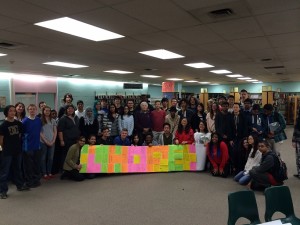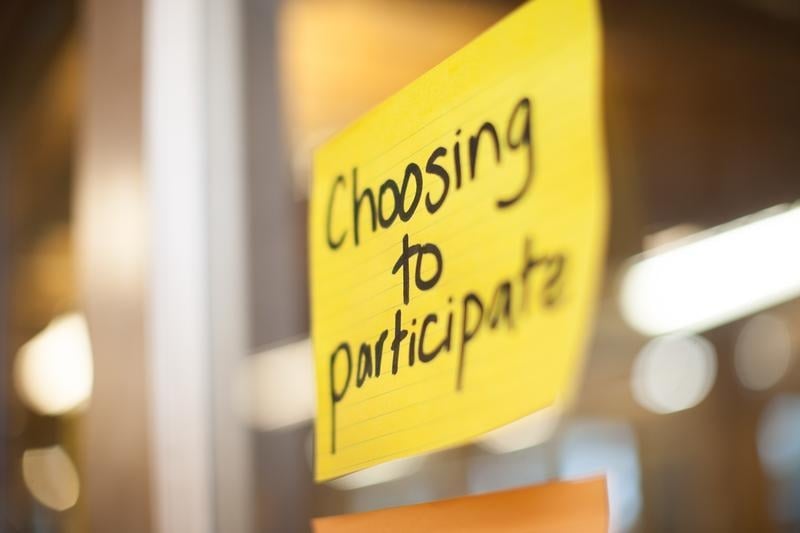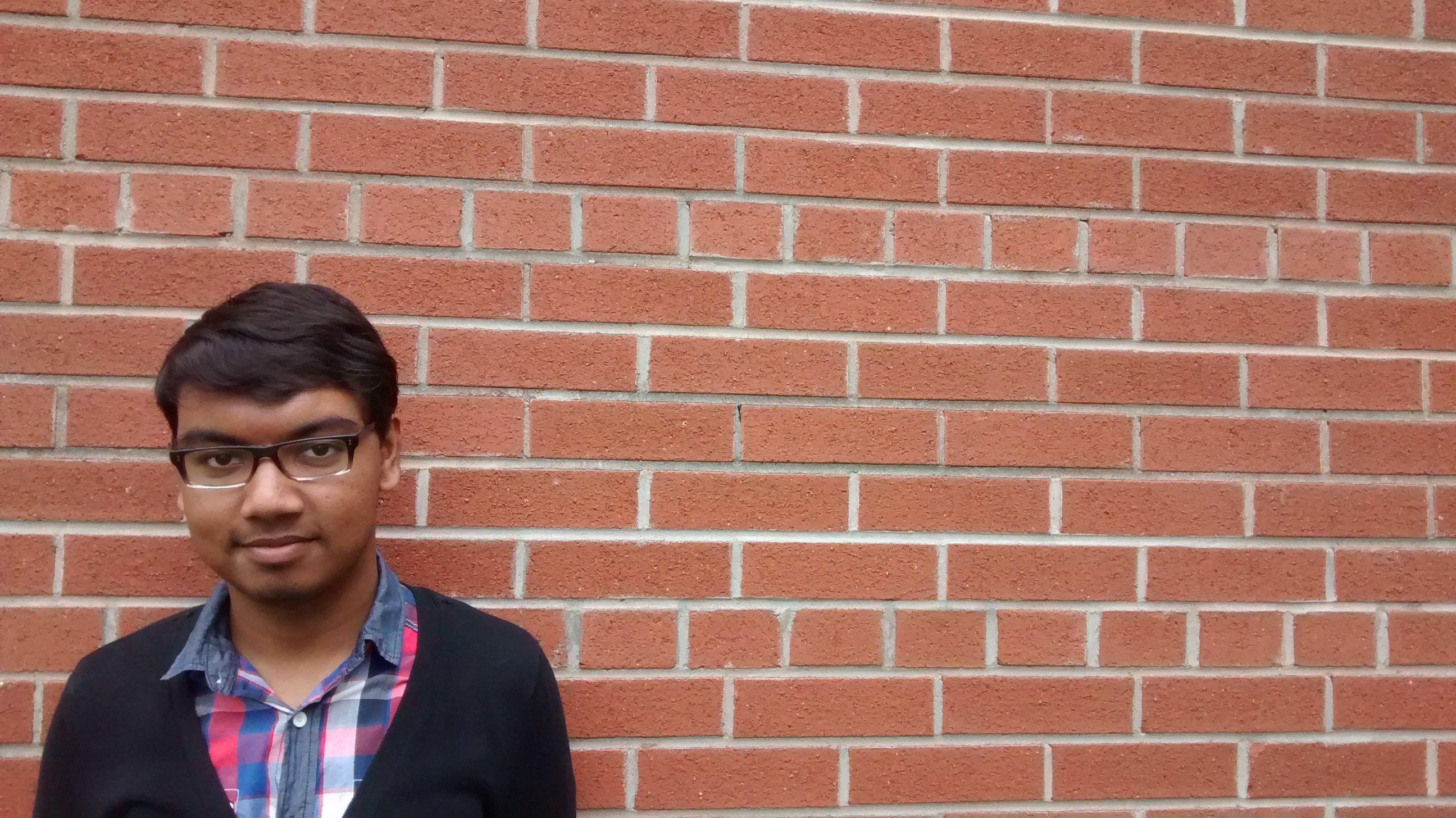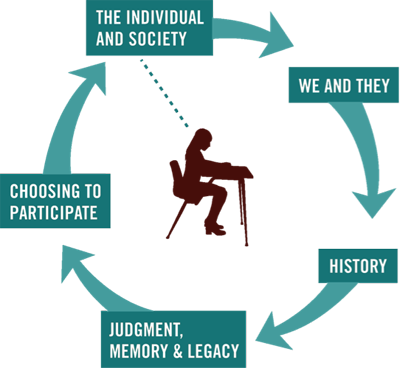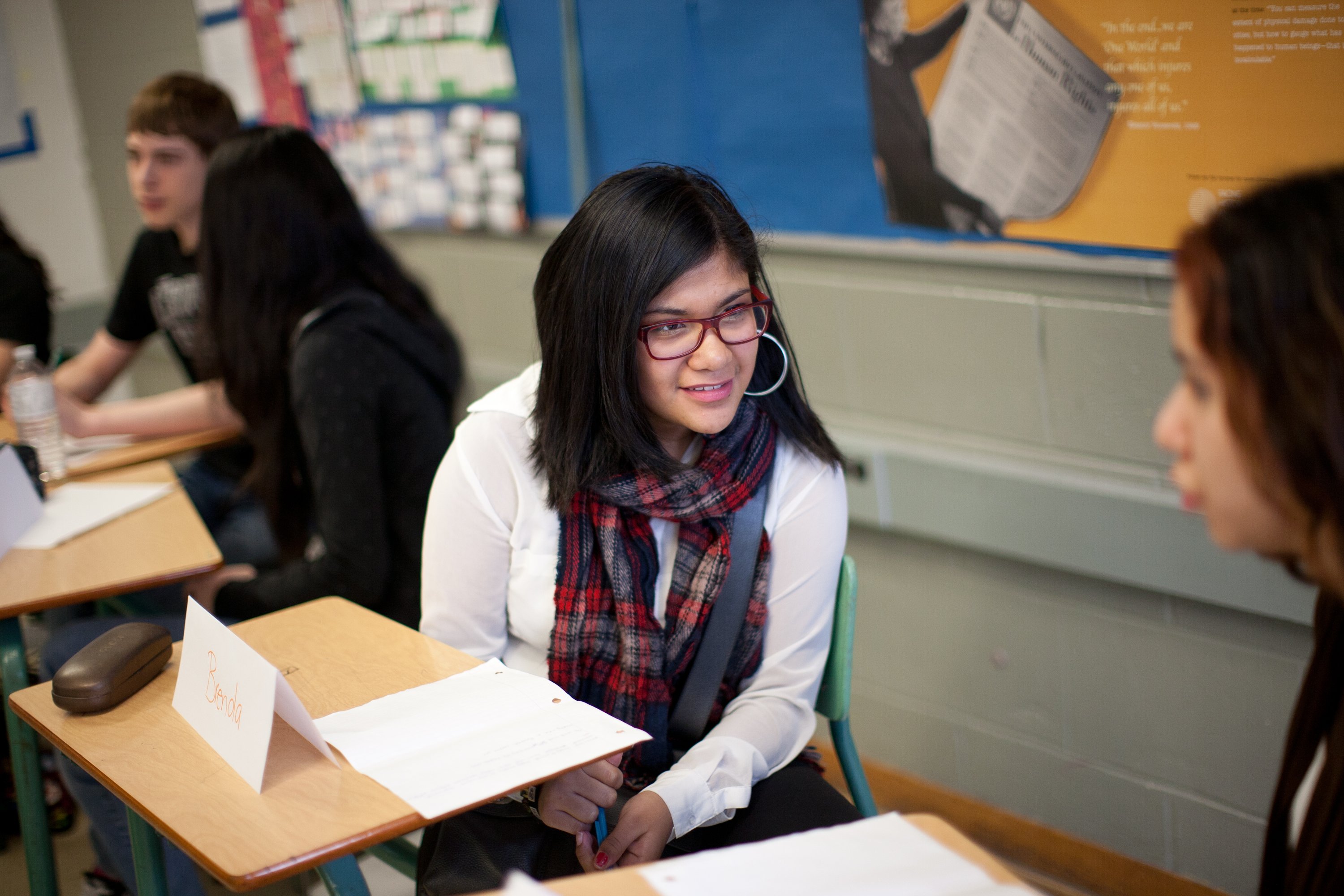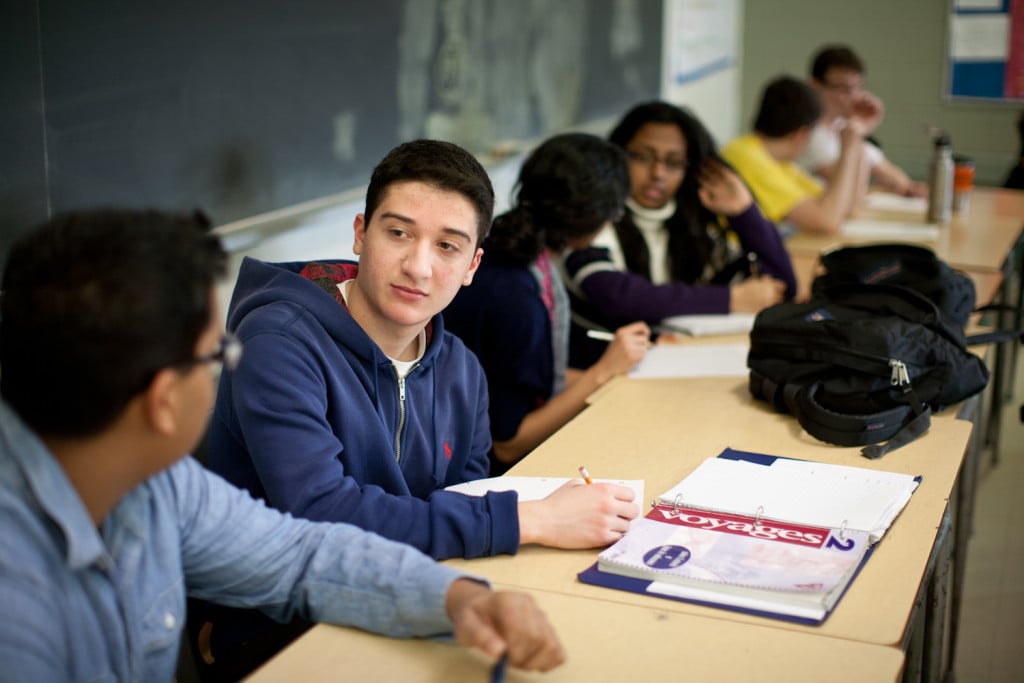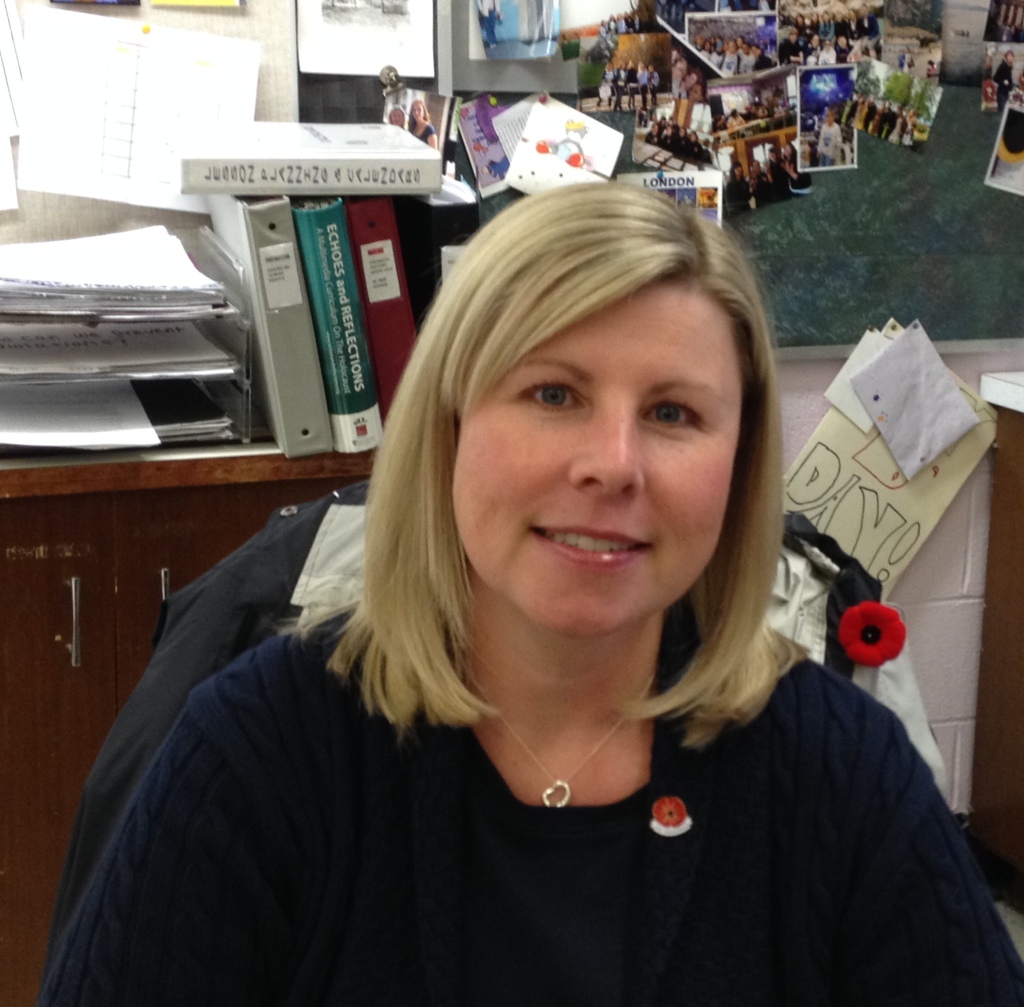Valerie Simmons was born in London, England in 1921. She has been writing poetry since she was six years old. At the beginning of WWII she worked in a first aid post dealing with Blitz casualties. When the Battle of Britain ended she joined the Women’s Air Force (WAF) where she was an admin officer throughout England and in Egypt. After the war she earned a BA from London University and went on to get her teaching qualifications. She has taught and worked in libraries.
Topics: Art, Choosing to Participate, Events, Identity, Facing History and Ourselves, Canada, Memorial, current events, legacy, Remembrance Day, English Classroom, Personal history
Remembrance Day is a poignant moment to reflect upon the sacrifice that men and women made before us. As we get farther away from the world wars of the past, how do we as educators ensure that this day is meaningful for our students?
Topics: Art, Antisemitism, Choosing to Participate, Facing History Resources, Identity, Holocaust, Facing History and Ourselves, Canada, Holocaust Education, Lesson Ideas
Facing History at the Movies: Three New Facing History and Ourselves Videos that Inspire
Posted by Cheryl Payne on October 17, 2015
During the month of October, Cineplex Entertainment has generously donated space to feature one of our latest PSA videos (See with Someone Else’s Eyes) as part of the Pre-Show in Cineplex theatres across Canada.
This is an incredible opportunity for people across the country to learn about Facing History and Ourselves. It also got us thinking about how these short videos can be used in our Facing History Classrooms. Find the PSAs below along with some discussion prompts and activities.
Topics: Film, Choosing to Participate, Events, Facing History Resources, Facing History and Ourselves, Canada
The day after a photograph of a drowned Syrian boy went viral, another image of the same child appeared below the headlines in The Toronto Star. I sat at my kitchen table reading the article shaking my head and covering my mouth with my hand.
Topics: Choosing to Participate, In the news
As an educator I often wonder what students remember once they have left my classroom. It is my hope that when they leave they take with them critical thinking skills, the ability to engage in difficult conversations, and a deeper understanding of how we are all connected - in the past, present, and future. Through all of my various attempts to learn from my students what they are getting out of their Facing History and Ourselves class, I have found that the best way to find out what students are learning is to ask them.
Each year, at the end of our grade 11 elective Facing History and Ourselves course, Genocide and Crimes Against Humanity, we take the time to reflect on our learning and ourselves. This year a group of students from my classroom chose to participate in a reflective interview process in lieu of their final journal entry assignment, and agreed to share their reflections.
Below, as inspired by the popular blog Humans of New York and the Facing History project, Humans of the Woodlands, you'll have the chance to glimpse into the classroom learning and life of a few of my Facing History and Ourselves students.
Topics: Choosing to Participate, Identity, History, Holocaust Education, Memorial, We and They, Culturally Responsive and Relevant Pedagogy, legacy, Genocide and Crimes Against Humanities Course, Holocaust and Human Behaviour, Inside a Genocide Classroom, Social Justice, Personal history, reflection
How to Teach About Canada's Residential Schools: A Model for Truth and Reconciliation
Posted by Cheryl Payne on June 3, 2015
At the release of the Truth and Reconciliation Commission of Canada’s final report, the call to educate all Canadians about the treatment and legacy of Residential Schools was loud and clear.
Facing History high school teacher Cheryl Payne-Stevens embarked on this important (and daunting!) task with her students and shared her experience with us:
Topics: Choosing to Participate, Facing History and Ourselves, History, Canada, Genocide and Crimes Against Humanities Course, Lesson Ideas
3 Ways Students Can Choose to Participate as an End of Year Project
Posted by Ben Gross on April 30, 2015
Over the years I have had many conversations with colleagues about how the Facing History and Ourselves’ Scope and Sequence—the framework for investigating atrocities in history—works in our classrooms. One of the topics that is brought up often is the last phase, Choosing to Participate.
Topics: Choosing to Participate, Inside a Genocide Classroom
From Understanding to Upstander: Inside a Genocide Studies Classroom
Posted by Lanny Cedrone on April 13, 2015
One of the questions that we often struggle with as teachers, and even more so as teachers that cover issues of genocide, is How do we even begin to understand something that is so far removed from most of our personal experiences?
Topics: Choosing to Participate, Safe Schools, Identity, Strategies, Genocide and Crimes Against Humanities Course, Lesson Ideas, Inside a Genocide Classroom
8 Lessons the Museum of Human Rights Taught Me about My Classroom
Posted by Jamie on November 27, 2014
Museums are invaluable to education. The carefully selected exhibits, information, and artifacts provide tangible and visual evidence for exploration, reflection, and dialogue that support lessons in the classroom. Museums allow students to build upon prior knowledge – to see things differently.
Topics: Art, Choosing to Participate, Facing History Resources, Holocaust, Canada, Innovative Classrooms, Museum Studies, Strategies
Meet Deborah Brown, one of the 20 finalists in our Facing History Together Teacher Recognition Contest.
Leora, Jeannette, Gillian, and I are so fortunate to work with so many amazing educators from across Canada: Educators who inspire us through their love for teaching, their enthusiasm for learning, and most of all, through their commitment to students. A number of individuals nominated one of these amazing teachers in this year's Facing History Together Teacher Recognition Contest: Her name is Deborah Brown and we want you to meet her.
Topics: Choosing to Participate, Facing History Together, Facing History and Ourselves, Innovative Classrooms

